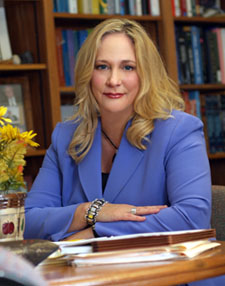Kim Dunbar Explores Dynamic Career Paths for Graduates with Chemistry Degrees


Renowned chemist and TAMU professor Kim Dunbar helps students interested in earning chemistry degrees understand the many potential career paths associated with them.
At Texas A&M University (TAMU), Kim Dunbar serves as the Davidson Professor of Science in the Chemistry Department. Her work, spanning decades of contributions to the international scientific community, has led to significant breakthroughs in areas like molecular magnetism and metals in medicine. The topics in her research encompass synthetic, structural, and physical inorganic and bioinorganic chemistry among others.
Kim Dunbar has been recognized over the years for leading, inspiring, and creating opportunities for students to enhance their learning through scientific research. Here, she names potential career paths for students looking to earn degrees in chemistry.
“In chemistry, we study matter and its various interactions,” says Kim Dunbar. “This type of research and understanding is required in a range of positions internationally, from medical projects to product manufacturing. There are countless exciting career choices available today for students interested in chemistry degrees.”
Some companies, Kim Dunbar said, deal only in chemical compounds and need to regularly hire chemistry graduates as a result. Forensics and government labs are other career paths that rely on the insight and understanding of chemists, whether they are producing evidence of unlawfulness or approving new medicines––and everything in between. Even unlikely professions such as paint making and working with petroleum companies require the assistance of these graduates.
“Education is another field where chemists can succeed, whether it’s at the grade school level or through continued education,” says Kim Dunbar. “In addition, pharmaceutical companies are founded on the work of scientists and chemists, providing many entry-level and advanced positions following graduation.”
Chemistry graduates are able to curb their interests towards a variety of positions, whether they take steps towards a career in scientific writing, work towards being the gatekeeper of patent applications, make improvements in medicine and healthcare, or something else entirely. Some graduates, however, may want to only apply their education and interests in research––either primarily or solely. And there are plenty of jobs to do just that, says Kim Dunbar.
“Research positions are available at institutions across the country and around the world, and they provide engaging and exciting opportunities to flex graduates’ problem-solving skills,” says Kim Dunbar. “Chemists in research roles come together to solve some of the world’s most pressing problems. They stay at the cutting edge of scientific developments, which is exciting on its own, and have huge potential to shape our world.”
